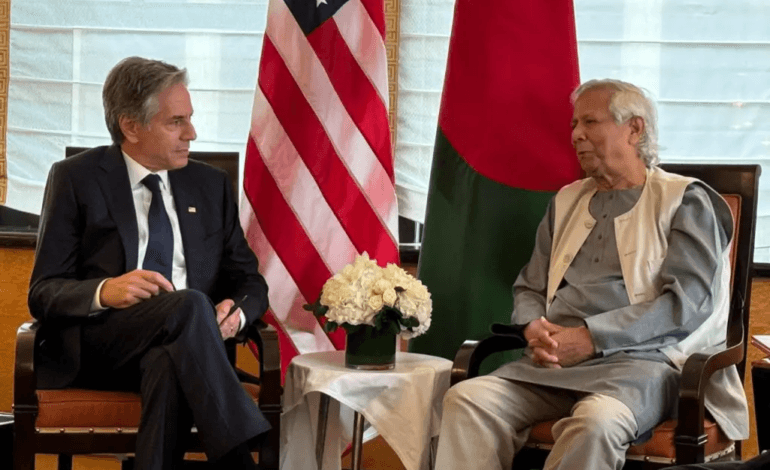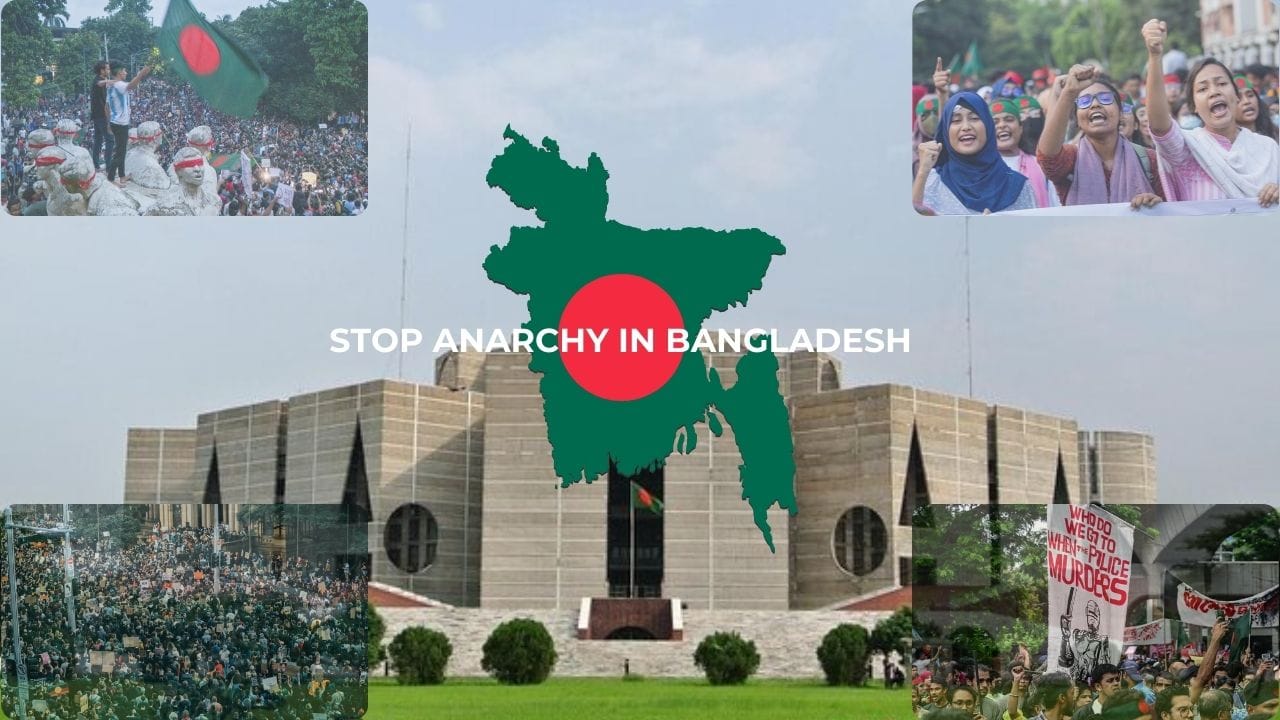Leaked Documents Reveal International Influence in Bangladesh’s Political Shift
Leaked declassified documents now show that Bangladesh Prime Minister Sheikh Hasina was ousted with crucial foreign interference, raising shuddering questions on foreign mediation in Bangladesh’s political circles. The documents prove

Leaked declassified documents now show that Bangladesh Prime Minister Sheikh Hasina was ousted with crucial foreign interference, raising shuddering questions on foreign mediation in Bangladesh’s political circles. The documents prove that IRI, which is funded by the US government, had been instrumental in training an all multi-mass activist group that included rappers and LGBTQI leaders for spearheading what was boasted as a countrywide “power shift.”
This has flared up a national debate on increasing external interference in the internal affairs of Bangladesh and the risks this runs for political stability and sovereignty of the nation.
Role of the International Republican Institute (IRI)
The IRI is a well-known American organisation promoting democracy around the world. The leaked documents put it that the Bangladeshi activists recruited for mobilisation against the Hasina government were trained by the IRI. Thus, based on the leaked documents, this project was seen to embrace more than just ordinary political activism. Specifically, the IRI hired people from a variety of backgrounds: arts and LGBTQI. In fact, through such a strategy, it worked towards creating an inclusive activist-driven movement to overthrow the government.
One other significant aspect of this operation was that it included rappers and LGBTQI in the campaigns, to which reports claimed the IRI organised cultural events like “transgender dance performances,” meant to be interpreted as triggers to rally around for their cause. The documents showed that the IRI staff pointed out the possibility that these activists could leverage along with the institute to further muddle Bangladesh’s political waters.
While cultural and social activism has often been part of many political movements around the world, this fact is indicative of how these activities were really part of a more ruthless attempt at trying to systematically dismantle and weaken the ruling government. This kind of intervention, if true, is a new dimension of foreign meddling, one that utilises not only the traditional structures of politics and civil society but also cultural and social identities in the formation of political change.
Fear over Foreign Interference
Such revelations had caused angst in the country, Bangladesh, as to the extent of foreign involvement into the political matters of the nation. While foreign funding and even influence in movements is nothing new, it is this case that highlights a tremendous danger in external entities working covertly towards derailing a sovereign nation’s established political system.
Critics claim this increases the tendency for breaking Bangladesh into two, further igniting unrest. Activist groups representing often marginalised societies and vocal causes can be easily taken advantage of by foreign organisations which may eventually fuel tensions within Bangladeshi society, a potentially long standing split within Bangladeshi society, in a country with such an intricate socio-political fabric.
Moreover, leaked documents suggest the actual intent was not just in building a stronger democratic environment but rather to destabilise the political situation as well, thereby creating a power vacuum that might be exploited by opposition forces or other vested interests. This brings in specific ethical concerns related to intentions and possible collateral damage from political training programs based outside. It’s cultural aspect also manifests in rappers and LGBTQI activists.
The input of cultural and LGBTQI activists makes this purported plan even more interesting. Bangladesh has always been a conservative country, and yet, despite some progress in social inclusion, cultural and LGBTQI communities continue to face battles and hardships. Mobilising such groups may have been a way for the IRI to create alternative political and societal narratives that challenge the government and the existing norms.
It is argued that this policy is an exploitation of the vulnerabilities of the marginalised groups. Such foreign interference risks playing on social conservatism, which has increasingly become a contentious issue in Bangladesh as well, and therefore pushing it further away from the mainstream political discourse of those communities.
The use of rap music, dance, and other cultural goods as mobilising tools further suggests the strategy had aimed to touch the younger generation, who are more amenable to alternative expressions.
Cultural activism can be a powerful avenue for social change; however, in this case, regarding the ethical issue of using such channels for overt political ends at the behest of foreign powers, a lot remains to be said.
Implications for Bangladesh’s Political Future
Critical to Bangladesh’s political future, especially in the wake of the elections that are soon to take place, are the leaked documents. A crisis is brewing-most especially with external entities said to influence politics, whether in the electoral processes and the democratic processes in general.
Bangladesh has already suffered criticism on its crack-downs of the opposition voice and civil society organisations. This is a very complicating factor because it discusses how foreign actors often seize opportunism of local grievances. Political polarisation across society can easily rise due to an alliance with or against foreign influences and deepen what already exists in most societies.
International organisations and their role in democracy The revelations also throw into the limelight the role of international organisations in democracy. While many such organisations strive to advance democracy, the difference between promoting democracy and interference into a country’s affairs sometimes is blurred.
Conclusion
The leaked documents reveal the role of IRI training activists to destabilise Bangladesh’s political system and increase the challenge of foreign interference in the country’s domestic affairs. Cultural and activist movements are important components of a vibrant democracy, but their use for such a purpose by third parties raises questions about sovereignty and stability from an ethical and political point of view.
As Bangladesh drifts into the current political unrest, how it treats this matter will lie in whether it seeks to have the government scrutinise the role that the external forces will play in shaping its future or having civil society scrutinise that role. It is on this note that maintaining national sovereignty; making sure that political change comes from within, rather than through foreign intervention, will be a vital step in ensuring the integrity of Bangladesh’s democracy in the years to come.



